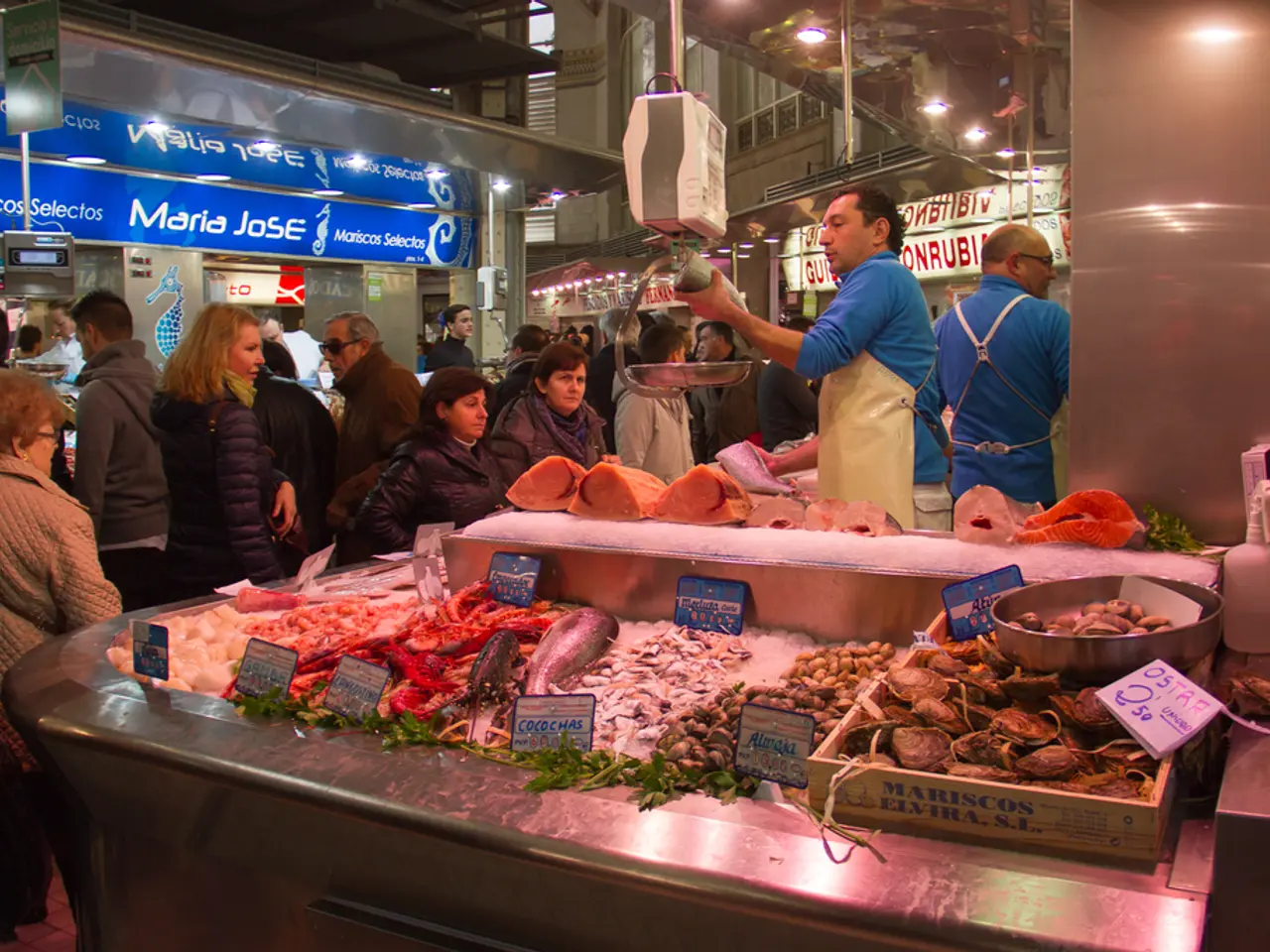Turkish seafood merchants aim for expanded presence in the Japanese market
Turkey's seafood and animal products sector has been making significant strides in Japan's market, with tuna alone generating $99 million of the country's exports in 2024. This success is part of a broader trend, as Turkish seafood and farmed fish, such as sea bass and gilt-head bream, are being recognised as high-potential rising players in other categories.
In 2024, Turkey's annual exports to Japan in the sector averaged around $100 million, with a 121 percent surge in seafood and animal products exports to $118 million. This growth is a testament to Turkey's strong and leading position in aquaculture exports to Japan, and the sector aims to increase its presence further.
The trade push is part of Turkey's Distant Countries Strategy, launched in 2022, which aims to boost exports to 18 markets, with Japan being a top priority. The strategy focuses on markets in Latin America and Asia-Pacific, as exemplified by the Distant Countries Strategy of Türkiye, founded in 2021.
Japanese companies prefer long-term, trust-based relationships and value face-to-face engagement. Trade fairs and buyer missions, such as the one held in Istanbul, are critical for fostering new partnerships and improving export numbers. The Istanbul seafood exporters' association, IŞHİB, recently hosted a Japanese buyer delegation in Istanbul, where 25 of Japan's largest importing companies met with Turkish producers for site tours and one-on-one meetings.
Turkey's trout production has grown rapidly in line with global demand for salmon. Turkish trout, marketed abroad as "Turkish salmon", has seen a significant increase in production and exports, with 78,000 tons exported in 2024, 16 times higher than in 2018.
Agricultural and food products, including seafood, pasta, olive oil, raisins, fruit juices, and tuna, are key components of Turkey's exports to Japan. Japan spends $14 billion annually on seafood, $4 billion on poultry, and $1.5 billion on dairy products, making it a significant market for Turkish products.
Technical barriers in food trade between Turkey and Japan are being addressed to facilitate smoother market access. This development, coupled with the growing popularity of Turkish seafood and animal products, positions Turkey well for continued success in the Japanese market.
Read also:
- Impact of Alcohol on the Human Body: Nine Aspects of Health Alteration Due to Alcohol Consumption
- Understanding the Concept of Obesity
- Tough choices on August 13, 2025 for those born under Aquarius? Consider the advantages and disadvantages to gain guidance
- Microbiome's Impact on Emotional States, Judgement, and Mental Health Conditions








